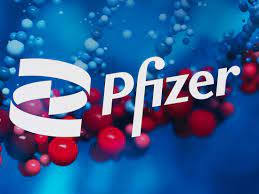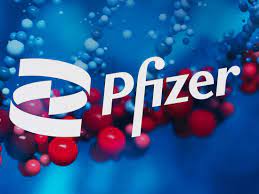
A license arrangement with the international public health organization Medicines Patent Pool will allow generic manufacturers to provide its experimental antiviral Covid-19 tablet to 95 low- and middle-income countries (MPP). Pfizer Inc said on Tuesday.
The MPP will be able to offer sub-licenses to qualifying generic medication manufacturers to develop their own copies of PF-07321332, thanks to a voluntary licensing agreement between Pfizer and the United Nations-backed body. Paxlovid will be the brand name for the tablets produced by Pfizer.
In a clinical trial, the tablet reduced the risk of hospitalization or death for persons at risk of severe illness by 89 per cent after being infected by Covd-1`9, according to Pfizer, which also produces one of the widely used Covid-19 vaccinations.
The medicine will be used in conjunction with ritonavir, a generic HIV treatment that is already made generically.
This licensing agreement of Pfizer comes after a similar deal that was struck by Merck & Co to generically produce its Covid-19 treatment. These agreements are remarkable in that they underscore both the urgent need for effective therapies and the pressure on drugmakers to make life-saving pharmaceuticals available at extremely cheap prices.
"We are extremely pleased to have another weapon in our armoury to protect people from the ravages of COVID-19," Charles Gore, Executive Director of the Medicines Patent Pool, said in an interview.
It is expected that the generic version of Pfizer's drug will git the markets within months, Gore said.
About 53 per cent of the global population comes under the 95 countries that would be covered by the license agreement cover and covers all the countries with low- and lower-middle-income economies as well as a few high earning nations in Sub-Saharan Africa. Pfizer and the MPP said that those economies that have transitioned from lower-middle to upper-middle-income status over the last five years are also included under the agreement.
"We believe oral antiviral treatments can play a vital role in reducing the severity of COVID-19 infections... We must work to ensure that all people – regardless of where they live or their circumstances – have access to these breakthroughs," Pfizer Chief Executive Albert Bourla said in a statement.
Royalties on sales in low-income nations will be waived by Pfizer. It will also waive them in the other countries included by the agreement as long as COVID-19 is defined by the World Health Organization as a public health emergency of worldwide significance.
The medicine produced by Pfizer will be in great demand. The business intends to produce 180,000 treatment courses by the end of next month and at least 50 million by the end of 2022, according to the company.
Even still, aiming to serve 47 per cent of the world's population may put a strain on the pharmaceutical.
Last week, a Pfizer official claimed the drug's market may be as large as 150 million individuals, and that several governments would be interested in purchasing dosages for their strategic reserves.
Pfizer has stated that it will sell the supplies it generates using a tiered price system based on each country's income level. In the United States, it aims to charge roughly $700 per course for its therapy, similar to Merck's.
Merck has license arrangements in place in over 100 countries for their COVID-19 medication, molnupiravir. Still, some international health professionals believe that this is insufficient to ensure that the treatment reaches a sufficient number of people in low- and middle-income nations.
(Source:www.nytimes.com)
The MPP will be able to offer sub-licenses to qualifying generic medication manufacturers to develop their own copies of PF-07321332, thanks to a voluntary licensing agreement between Pfizer and the United Nations-backed body. Paxlovid will be the brand name for the tablets produced by Pfizer.
In a clinical trial, the tablet reduced the risk of hospitalization or death for persons at risk of severe illness by 89 per cent after being infected by Covd-1`9, according to Pfizer, which also produces one of the widely used Covid-19 vaccinations.
The medicine will be used in conjunction with ritonavir, a generic HIV treatment that is already made generically.
This licensing agreement of Pfizer comes after a similar deal that was struck by Merck & Co to generically produce its Covid-19 treatment. These agreements are remarkable in that they underscore both the urgent need for effective therapies and the pressure on drugmakers to make life-saving pharmaceuticals available at extremely cheap prices.
"We are extremely pleased to have another weapon in our armoury to protect people from the ravages of COVID-19," Charles Gore, Executive Director of the Medicines Patent Pool, said in an interview.
It is expected that the generic version of Pfizer's drug will git the markets within months, Gore said.
About 53 per cent of the global population comes under the 95 countries that would be covered by the license agreement cover and covers all the countries with low- and lower-middle-income economies as well as a few high earning nations in Sub-Saharan Africa. Pfizer and the MPP said that those economies that have transitioned from lower-middle to upper-middle-income status over the last five years are also included under the agreement.
"We believe oral antiviral treatments can play a vital role in reducing the severity of COVID-19 infections... We must work to ensure that all people – regardless of where they live or their circumstances – have access to these breakthroughs," Pfizer Chief Executive Albert Bourla said in a statement.
Royalties on sales in low-income nations will be waived by Pfizer. It will also waive them in the other countries included by the agreement as long as COVID-19 is defined by the World Health Organization as a public health emergency of worldwide significance.
The medicine produced by Pfizer will be in great demand. The business intends to produce 180,000 treatment courses by the end of next month and at least 50 million by the end of 2022, according to the company.
Even still, aiming to serve 47 per cent of the world's population may put a strain on the pharmaceutical.
Last week, a Pfizer official claimed the drug's market may be as large as 150 million individuals, and that several governments would be interested in purchasing dosages for their strategic reserves.
Pfizer has stated that it will sell the supplies it generates using a tiered price system based on each country's income level. In the United States, it aims to charge roughly $700 per course for its therapy, similar to Merck's.
Merck has license arrangements in place in over 100 countries for their COVID-19 medication, molnupiravir. Still, some international health professionals believe that this is insufficient to ensure that the treatment reaches a sufficient number of people in low- and middle-income nations.
(Source:www.nytimes.com)














